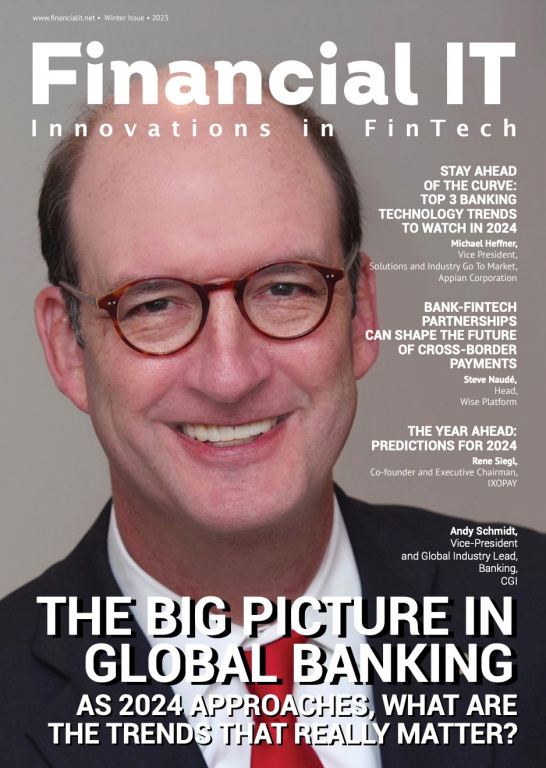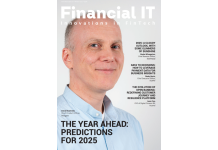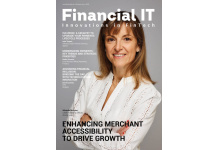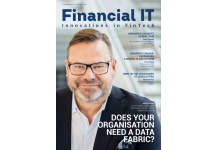Financial IT Winter Edition 2023

- 04 Dec, 2023 09:00 am
2023 was the year in which generative artificial intelligence (AI) took off. Where might it be headed over the next three years?
At the intersection of financial services and technology, there are always large and rapid changes. However, they almost never have a direct impact on all the protagonists. ISO20022, for instance, provides a new language for banks and fintechs that are involved in payments: however, it is not something that the banks’ and fintechs’ clients need to worry about much. The European Union’s Digital Operational Resilience Act (DORA) implies costs and benefits for financial institutions in much of the world: nevertheless, it does not really affect the day-to-day operations of most specialised fintechs. The same is true of Open Banking.
AI, though, is different. For years prior to 2023, predictive AI - which uses data from the past to predict the future - has provided opportunities for some financial institutions and fintechs. 2023 saw the emergence of generative AI, which can create new and original content. What really matters is that generative AI will - one way or another - have an impact on all organisations: for this reason, its arrival is probably the biggest change to have taken place since the inauguration of Financial IT in late 2012.
Unsurprisingly, many of the contributors to this edition of Financial IT have devoted their articles to the prospects for generative AI as they look forward to 2024 and subsequent years. In no particular order, their opinions include the following:
- ‘AI-powered decisioning complete with case management, data, and insights provides the foundation for more accurate, automated risk decisions across the entire customer life cycle - enabling a superior customer experience and allowing financial institutions to maximise the lifetime value or customer relationships.’ [Provenir]
- ‘Banks know that AI offers the potential for improved customer service. They see it as a source of more and better insights. They want the benefits that come from greater automation.’ [CGI]
- ‘The lending industry to date has been impacted much more by predictive AI than generative AI. That means there’s a greenfield opportunity to be among the first to deliver significant generative AI-driven enhancements within the loan servicing space.’ [Peach Finance]
- ‘A strong AI strategy combined with data and process automation is how you’ll succeed in 2024.’ [Appian]
- ‘The CEO of a Dutch compliance tech firm recently put it nicely when he described AI as a “co-pilot”. In the financial services context, this means aiding fraud teams by speeding up fact-finding and strategy, rather than replacing people power. … Where generative AI will add significant value is in providing enhanced insight as to why cases have been referred (for example generating contextual notes that aid streamlined working) and suggesting potential investigative paths based on each specific case.’ [Synectics]
- ‘The exciting thing about AI is that no-one can perfectly predict its future impacts. That’s why it’s vital for lenders and service providers alike to stay adaptive - ready to respond to and capitalise on the opportunities that present themselves as the pace of innovation continues to increase.’ [Peach Finance]
It remains to be seen whether there are as many use cases for generative AI over the next year as our contributors seem to expect. It is possible that 2024 brings far more talk than action. Nevertheless, it is a very safe bet that generative AI will have had a transformative effect by the end of 2026.
Over the next three years, it is also certain that all protagonists will gain a much clearer understanding of the limitations of generative AI. It has the capacity to be used for ill as well as for good. Its output is only as good as the data that is supporting it. Humans will continue to play a key role in determining the flight trajectory. In these respects, generative AI is like any aircraft that is based on very new technology.
Andrew Hutchings
Editor-in-Chief, Financial IT





















